The Transat: Fast conditions south, rough seas north
Published on May 8th, 2016
(May 8, 2016; Day 7) – Approaching the end of the sixth day at sea, The Transat bakerly from Plymouth to New York is still led by the Ultime Macif, skippered by Francois Gabart. A brand new 100ft trimaran, Macif is lightweight and built for speed.
Averaging 5-6 knots faster in the lighter weather than Thomas Coville on the heavier Sodebo, this morning Gabart leads by 165 miles with just over 1,000 miles to New York – the flat and fast conditions on the western side of the Azores High playing to Macif’s strengths.
Yves Le Blevec aboard the third Ultime, Team Actual, now more than 300 miles behind Macif, is taking his first solo race in the class in his stride, enjoying watching the intense battle to the Big Apple unfurl ahead of him.
Today the Ultimes continue on their ascent to New York, with the leader expected to arrive early on Wednesday 11th May.
Tailing the Ultime fleet in the south are the Multi50s French Tech Rennes St Malo skippered by Gilles Lamiré and Vers un Monde Sans Sida sailed by Erik Nigon. Benefitting from less hostile conditions in the south, Lamiré now leads the Multi50s by 100 miles, taking the initiative from Lalou Roucayrol on Arkema.
Further north, Roucayrol and the majority of the monohull fleet are sailing a very different race – the skippers in the south in shorts and T-shirts and zipping across the ocean, while those in the north are still being thrown around in the aftermath of the depression that swept the fleet on Friday and Saturday.
Now that the storm-force winds have abated, it is the sea-state that is the problem. “These last 48 hours have been painful, extremely painful,” said Roucayrol who is fighting to stay in contention. “There has not been so much wind, but the sea-state is really holding us up. We have to slow down.
“I have no problems on board, but I can only just about eat and I’ve had little sleep. Gilles (Lamiré) and I have different strategies and we making our own way to New York. Gilles is on a calmer express highway today, but the games goes on and there’s more weather to come. It will be a complicated race right to the end.”
The Multi50 fleet is expected to arrive in New York around the 13th and 14th May.
In the IMOCA 60 Class, Armel Le Cléac’h (Banque Populaire) has extended his lead on the five-boat fleet, now 40 miles ahead of chasing Vincent Riou on PRB. Le Cleac’h and Riou are continuing to sail on a southwesterly heading parallel with, and about 200 miles south of, the southern limit of the official Ice Exclusion Zone.
“This edition of the race is all about weather transitions,” Le Cléac’h explained via email as he too tackled the light winds that have followed the depression. “We had a pretty tricky passage where the wind swung round from the southeast to northwest in the space of two miles. The sea-state was chaotic. We went from starboard tack under gennaker to port tack under staysail. That is physical on these boats. The wind has been quite unstable.
“I’ve managed to get a few miles on the fleet, but Vincent is still clinging on. It’s going to be a complicated race until the end – it is tough,” added Le Cleac’h. The first IMOCA 60 is expected in New York on 14th May.
In the Class40s, Armel Tripon (Black Pepper) has decided to put into Horta in the Azores following damage aboard his boat. As the worst of the low pressure hit, Tripon took a dramatic dive south, fleeing the storm. The skipper has spent the last 24 hours trying to rectify what he had hoped would be minor issues – aerial problems, a torn sail and power charging issues – but has today decided he needs to stop.
At the front of the Class40 fleet, the battle still rages between Isabelle Joschke (Generali-Horizon Mixité), Thibaut Vauchel-Camus (Solidaires un Peloton–ARSEP) and British skipper Phil Sharp (Imerys).
While Sharp is the nominal leader, the British skipper still has to carry out a six hour stop-go time penalty that will put him out of the running for a time, leaving Joschke and Vauchel-Camus to fight for the top spot. Talking from the boat this morning, Vauchel-Camus joked that there is no shortage of salt on board right now!
The first Class40 should arrive in New York on May 19th.
Event website – Tracker – Facebook
About The Transat
Twenty-five boats set sail May 2 2016 on one of the great races in solo sailing, the 3,050-nautical mile passage across the north Atlantic from Plymouth to New York. Alongside 24 competing skippers is a one-off entry by the French racing legend Loick Peyron who is sailing Eric Tabarly’s 44ft wooden ketch Pen Duick II in the same trim as she was when Tabarly raced her to victory in The Transat (then called the OSTAR) in 1964.
The OSTAR (Observer Singlehanded Trans-Atlantic Race) was created in 1960 by a handful of pioneering sailors. The race was organised every four years by the Royal Western Yacht Club (RWYC) from 1960 through to the 2000 event, albeit with a lot of involvement from the French event organiser Pen Duick in the 90s, in order to cater for the demands of the professional campaigns that dominated the event.
After the 2000 edition, OC Sport stepped in to develop the event and acquired the rights to the professional part. OC Sport organised The Transat in 2004 and 2008, the 2012 edition was deferred at the request of IMOCA (the largest competing class).
The RWYC continues to organise a solo transatlantic race for Corinthian and non-professional sailors that is still known as the (O)STAR,. This race usually falls a year after the professional big boat race i.e. 2005, 2009, 2013, 2017. Both the amateur Yacht Club event and The Transat have the right to link to the history of the original race created in 1960, and to the rich history it has produced.
The first race was competed by just a handful of pioneering sailors including Francis Chichester and Blondie Hasler who coined the phrase: “One man, one boat, the ocean.” There has been tragedy, dramatic rescues and exceptional drama since the race began in 1960. Over time The Transat, as it is known today, has evolved and now serves the professional end of offshore sailing. But there are few modern day races that can reflect on such a long and outstanding history.
Monohull IMOCA 60 record: 12 days, 11 hours and 45 minutes set by Loick Peyron (FRA) on board Gitana in 2008. Multihull 60ft record: 8 days, 8 hours, 29 minutes set by Michel Desjoyeaux (FRA) on board Géant in 2004.
Source: The Transat




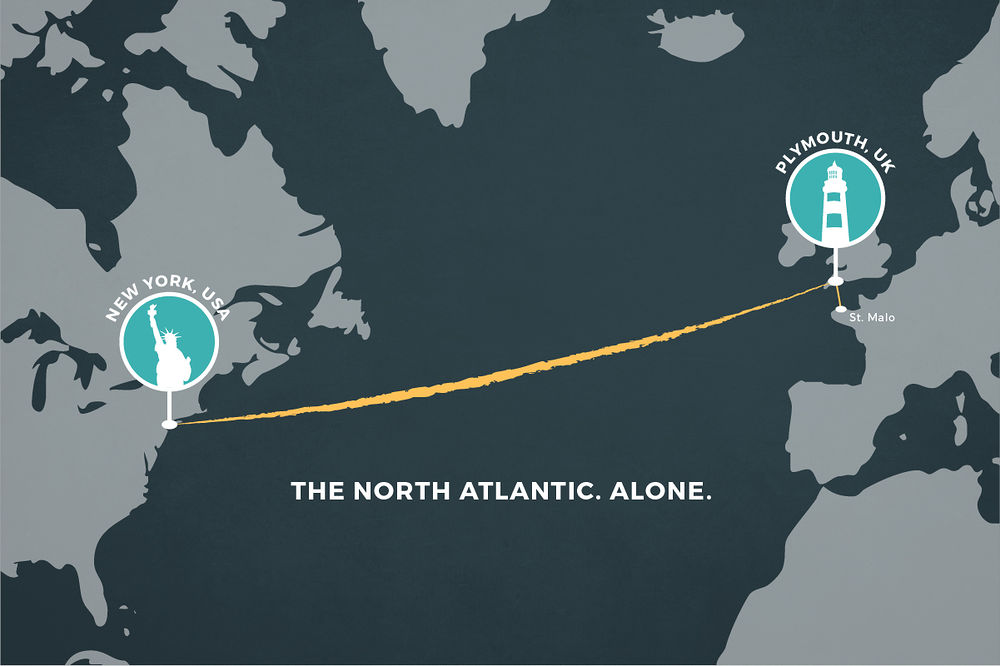
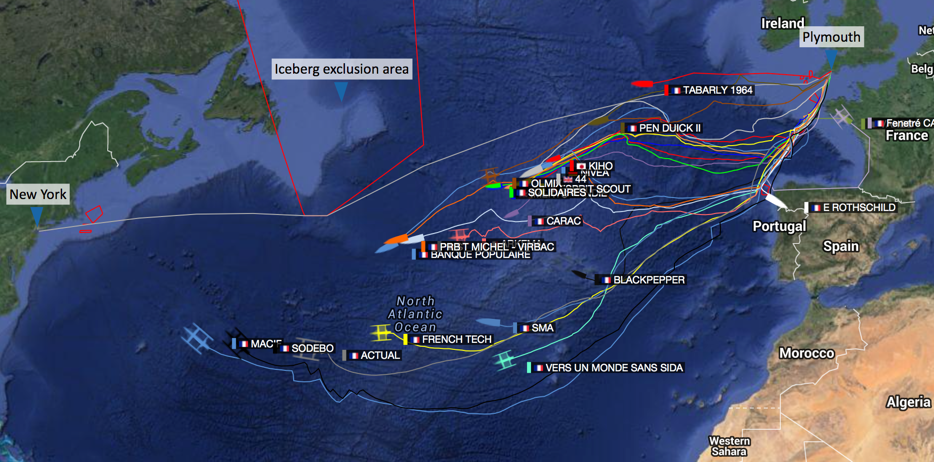

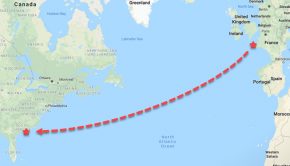
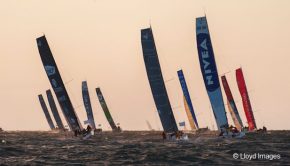
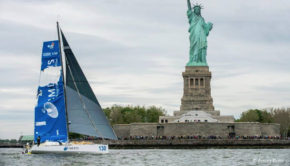
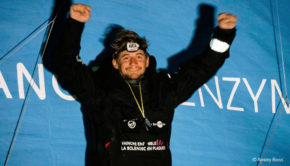
 We’ll keep your information safe.
We’ll keep your information safe.